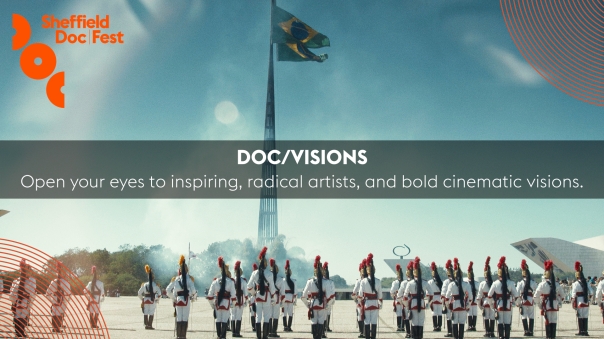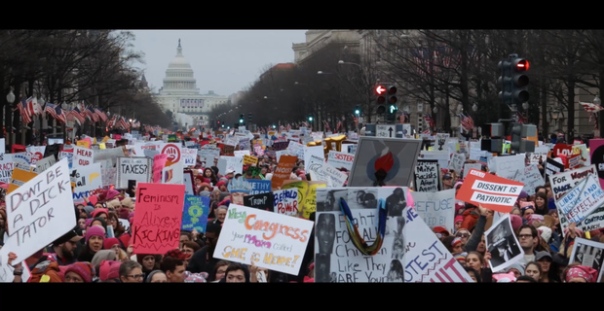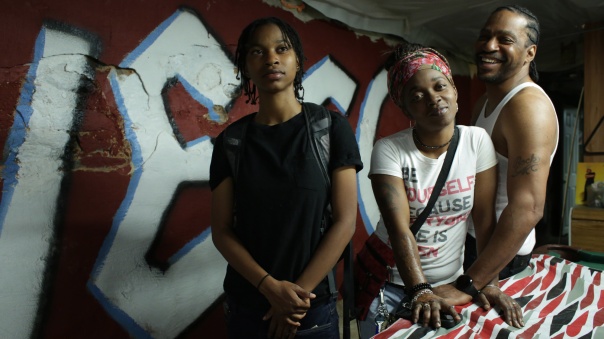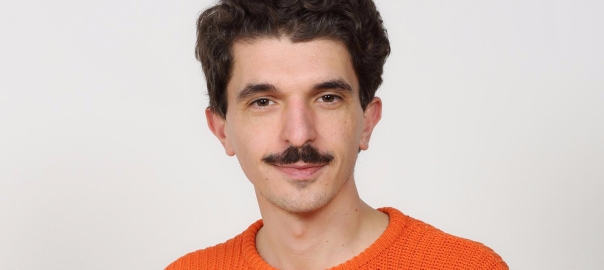Coming from doc champion Britdoc, the Sheffield Doc/Fest’s new Director of Film Programming Luke Moody has deliberately set out carving a space for marginalised voices in his film programme, as well as encouraging more experimentation with the form. In a recent telephone interview he outlined his vision for film at Doc/Fest, and highlights a number of docs to look out for in the upcoming festival, which will screen some 133 features and 55 shorts. Here’s an edited transcript:
You joined in November and you’ve got a June festival so you’ve had to hit the ground running. I’m wondering what was it like putting together this huge programme in that amount of time?
It was a challenge, definitely. One of the major challenges this year was to restructure strands because I was quite clear in what I wanted to do in terms of reducing the number of strands Sheffield has. Partly for audiences locally to be able to navigate that programme and understand the different genres and themes within it, but also to allow me as a programmer and the festival to be able to expand into showing more creative forms of documentary, particularly with this new strand called Visions this year. But I think also for me it was very important to do that this year, to begin to create a kind of legacy or a bit of an identity for the programme. To basically allow authored filmmakers to know what we do. Now we have these six kind of core strands. I think they can also see their place within the festival.
I come from a background of funding documentaries, funding from development to post production film. So for that reason I’m very much across global production – what’s out there, what’s being made at the moment. But that relationship to films, where you’re looking at them as a funder as opposed to a programmer is very different because it operates between different criteria of what you want to support. So it’s been a challenge doing it in such a short space of time. But what I hope I’ve managed to do is change the structure in which I operate to allow the programme to flourish in future years. And to really permit a discovery and a champion. One of the things I most enjoy in programming actually is being a champion of voices who don’t have a platform elsewhere. I think the danger of a lot of documentary festivals is that they just become the best of fests. They’re safe – they repeat what is being programmed elsewhere. And that’s been a challenge, to not do that this year.

Can you give examples of films that were completely unknown to you until they came through the submission system?
I think our numbers this year for submissions officially were like 2200, which is an increase on previous years…There are a number of things which have come through the system from international filmmakers, that I’d not encountered previously. Armed with Faith is one of the films from that pile. And that’s a story of a bomb disposal unit in the North of Pakistan, who are on the frontline of a terrorist infiltration of Northern Pakistan. And it’s really quite a visceral piece – you’re essentially accompanying a bomb disposal unit operating with very little equipment to dispose of landmines and various contraptions which are meant to terrorise local communities in the north of Pakistan.
Another one is Freedom for the Wolf, which I think is a very strong directorial debut from a British filmmaker who I think is not based in Britain at the moment called Rupert Russell. And it is a highly stylised, quite essayistic look at the question of freedom globally, and the question of what freedom means in relation to democracy and whether other systems of governance permit freedom more than democracy perhaps. And it just feels highly confident in what its trying to do. Normally on paper at least I’m quite dissuaded by things that are like pick a theme and visit ten places in the world to explore that theme, but he’s managed to do it in a very confident and articulate way.

Do you have a couple of examples of the short films that you would highlight?
What I’ve tried to do specifically with the shorts programme this year is firstly to have the ability to show more short form content, but also giving it a different range of the types of shorts that we show here. I think historically they’ve been reasonably conservative, the types of shortform storytelling that the festival has championed. But we’ve moved into things that are already online – investigative projects that are much more responsive to what’s happening in the world this year. And also experimental pieces that are also artists’ interpretation of the documentary form. Which I think gives the programme more richness in terms of just developing those voices.
In the more experimental area, in the Visions programme we have some emerging talents including a lady called Emma Charles. Who’s a British artist filmmaker. And she’s made a 16 mm film of a subterranean centre. And it’s a really beautiful piece. And I understand that it was developed when she was studying at Royal College of Art and it’s her first piece since graduation.
We’re also giving a platform to a lot of films from the Stop Play Record programme which was a partnership between ICA and Dazed Magazine funded by the Arts Council, with Channel 4. It’s essentially a training programme for young filmmakers aged 16-22 to create 3 minute films. Championing those filmmakers showing new forms of documentary and animation for me is one of the best things a festival can do – to give a platform and exposure to those voices.
I was wondering if you could talk a little bit about how documentary storytelling is evolving creatively and expanding and overlapping with drama?
There are two directions, or trends that I’ve seen in particular. There’s a renewed interest and passion for verité storytelling. Really strong observational films produced over three or four or six years in some cases that are just like really close and warm narratives. The majority of those are family stories, things like The Cage Fighter, or Quest, which is a really outstanding debut by a filmmaker who was a photographer. And he started making a photo project with this family in Philadelphia. And gradually what he was doing evolved into a different form or storytelling, shooting a little bit of material here and there and increasing the confidence of the family and their trust in what they both wanted to do and achieve by telling their story. And Mama Colonel is another one of those, by Congolese filmmaker Dieudo Hamadi, which is like a Kim Longinotto film. So there has just been this – I guess it’s not a reemergence of that style of storytelling, because a lot of them are made over a long period of time – but perhaps it’s a reaction to the presence of fake news these days. People are wanting to return to very much the nitty gritty of factual storytelling and observation and just being very embedded within a community that they’re trying to portray. So that they get some sort of shared truth within that development. And I think the majority are films which have not been initially funded. They are things that have evolved from other projects.

Within the Visions strand but also within the Adventure strand there are films that have this really strong conceptual approach to filmmaking and the way that we interpret reality to storytelling. Ghost Hunting is one of the most powerful. A really reflexive piece that explores the power between direction of a filmmaker and those portrayed on the camera, to the point where the tide turns and they start to question what he’s trying to achieve with the film. And he has to then become open and become vulnerable as a director to be part of that shared experience of change within the film. And other films, Do Donkeys Act, a new take on ethno zoology. It’s looking at the relationship of individuals and animals. And again it’s something that’s not developed through the life of a donkey. The filmmakers had a concept and executed it in that case.
You’ve taken the helm during a particularly turbulent time. How much does what is happening environmentally, politically and humanitarian wise inform your choices?
Definitely there’s a spine of films through the programme which are about the environment we live in. Particularly a reflection on European politics at the moment. We’ve got the world premiere of a film called Wilders, which is a portrait of Geert Wilders and has access to him being frank and very strangely open to potential criticism within that piece.
We also have things like the Jo Cox: Death of an MP and Brexitannia too which are both very close to home reflections of changing politics within Britain and the question of who actually has the voice within media and who is represented through what we consider storytelling. When politics are questioning essentially whether certain voices in society are ignored, you have to try to look and in some ways address that. And I don’t think there are enough films out there that are coming from the non represented communities within Europe. So yeah it’s a challenge as a programmer: if the film doesn’t exist out there which give an alternative perspective on that political shift then you can’t play it.
You are the first British programmer that Sheffield has had in many years. How to you approach to selecting British films for the programme and what are you throughts about the health of British documentary genre in particular?
We don’t preference British filmmakers in the programme. Obviously the festival as a UK institution has a responsibility to British cinema and developing particularly the kind of theatrical form of documentary with the film programme. For me exposing filmmakers to different forms of storytelling is one of the greatest ways to develop cinematic language and allow filmmakers to grow in their own confidence and storytelling…We’ve got a section called Focus UK which will continue to be in the programme. But this is a mixture of celebrating British storytellers but also allowing us to give a platform to filmmakers from other parts of the world looking in on Britain. Because I think that as important as British filmmakers covering stories at home. You can get entirely different interpretations of British narratives from people from other parts of the world. I’d like to see more of that to be honest. There’s been this historical imbalance of British, European and American filmmakers going to what they see as exotic parts of the world. I’d love to see the kind of turn where parts of the world that are now far more developed than they used to be in terms of the film industry and otherwise come and reflect on Britain and see this as an exotic and alien environment or interpret it through a different lens.
Sheffield Doc/Fest runs from 9-14 June.
